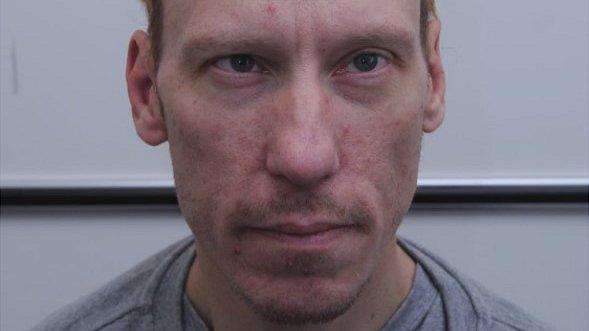Serial killer Stephen Port jailed for rape drug murders
- Published
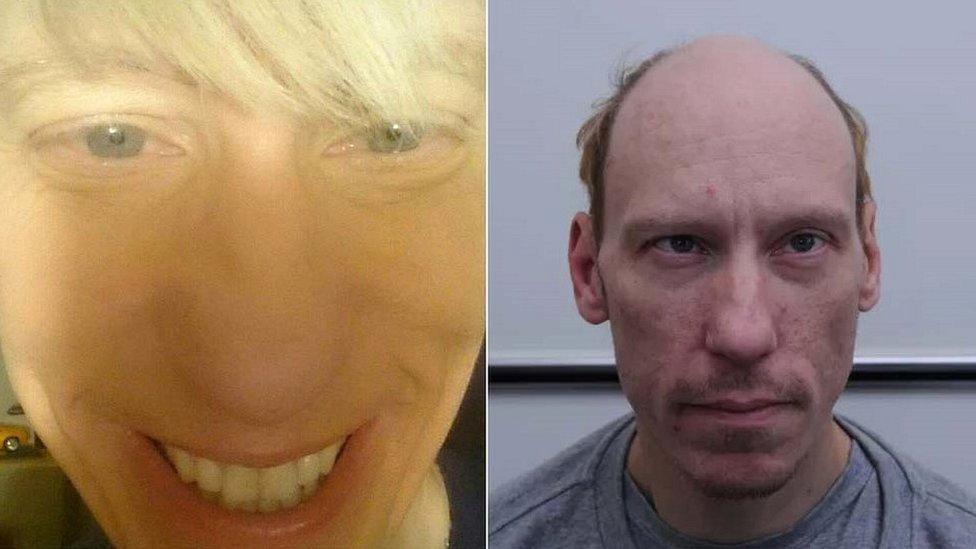
Port presented a very different version of himself online (left) where he claimed he'd been in the navy and graduated from Oxford University
A "wicked and monstrous" serial killer who poisoned four young men with lethal doses of a date rape drug has been given a whole life prison term.
Stephen Port, 41, should die in prison, the judge Mr Justice Openshaw said.
The former chef, who was also convicted of a string of sex offences, lured his victims to his flat before plying them with GHB.
Port, who had denied 29 charges in total, was found guilty of the murders after a trial at the Old Bailey.
GHB: The killer drug used by Stephen Port
Victim's family "disgusted" by police
Relatives of the victims cheered and clapped as Mr Justice Openshaw told Port he would never be released.
The judge told Port that he had carried out the murders to "satisfy his lust" for sex with young men who were rendered unconscious.
He highlighted Port's attempt to cover up two of his murders with fake suicide notes as "wicked and monstrous".
One fake note planted on the body of a victim alluded to responsibility for another of Port's killings.
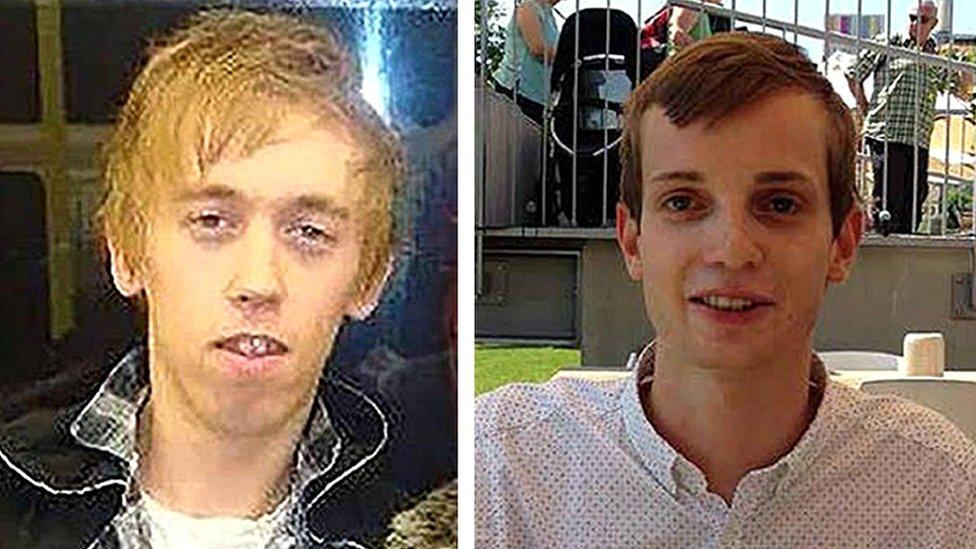
Anthony Walgate (left) and Gabriel Kovari were Port's first victims
Between August 2014 and September 2015, Port murdered Gabriel Kovari, 22, from Lewisham, Daniel Whitworth, 21, from Gravesend, Kent, and Jack Taylor, 25, from Dagenham, east London.
By a majority verdict, the jury also found him guilty of murdering Anthony Walgate, 23, from Dagenham, in June 2014.
The victims met Port via dating websites such as Grindr and were taken to his flat in Barking, east London, for sex.
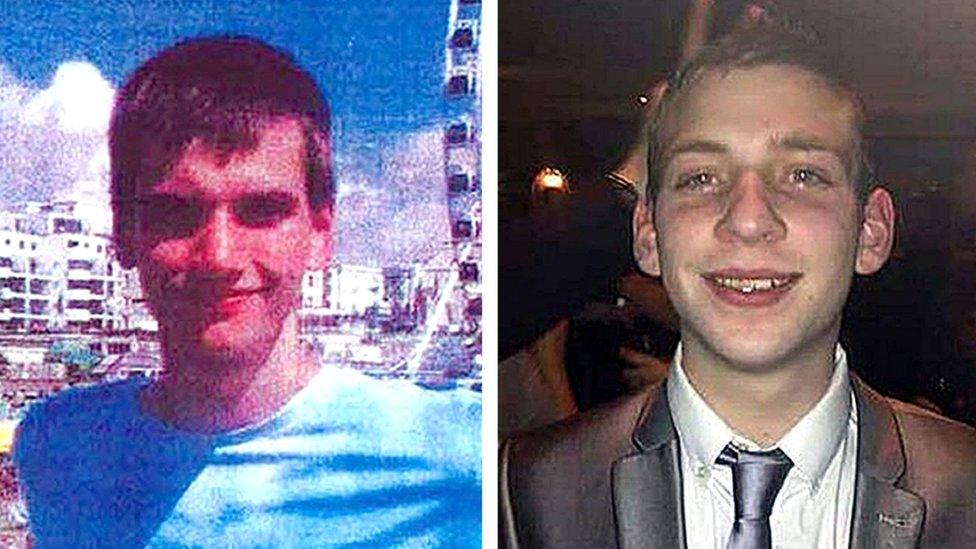
Daniel Whitworth (L) was murdered a year before Jack Taylor (R) died
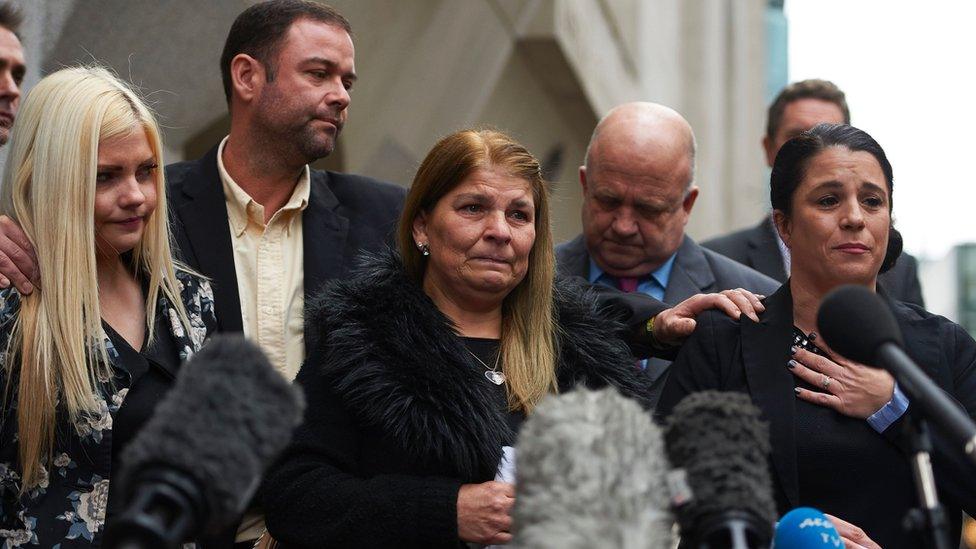
Jack Taylor's family, pictured after the verdicts were delivered, branded Port "sick"
Their bodies were all found dumped in or near a graveyard within 500m of his home.
During sentencing Mr Justice Openshaw referenced the police investigation into the deaths, which has been criticised by the victims' families.
"It is not for me to say whether the seeming bizarre coincidence of these three gay young men being found dead so close together might have given rise to suspicions that these deaths were not the result of ordinary self-administered drug overdoses," he said.
"The competence and adequacy of the investigation will later be examined by others."
'Twisted scumbag'
Before the sentence was handed down, statements from the victims' friends and families were read by prosecutor Jonathan Rees QC.
The mother of Mr Walgate said the death of her son had "devastated and broken the family".
Mr Kovari's brother Adam spoke of the difficulty in telling their mother of his death, saying "there is no pain greater than losing a child".
Daniel Whitworth's father Adam said he had been given "a life sentence of grief".
Outside court, Mr Taylor's sister Donna said: "We finally have justice for Jack and the other boys.
"A sick and twisted scumbag will never be able to hurt or destroy any other family's life.
"Jack can finally rest in peace. We will always be completely heartbroken."
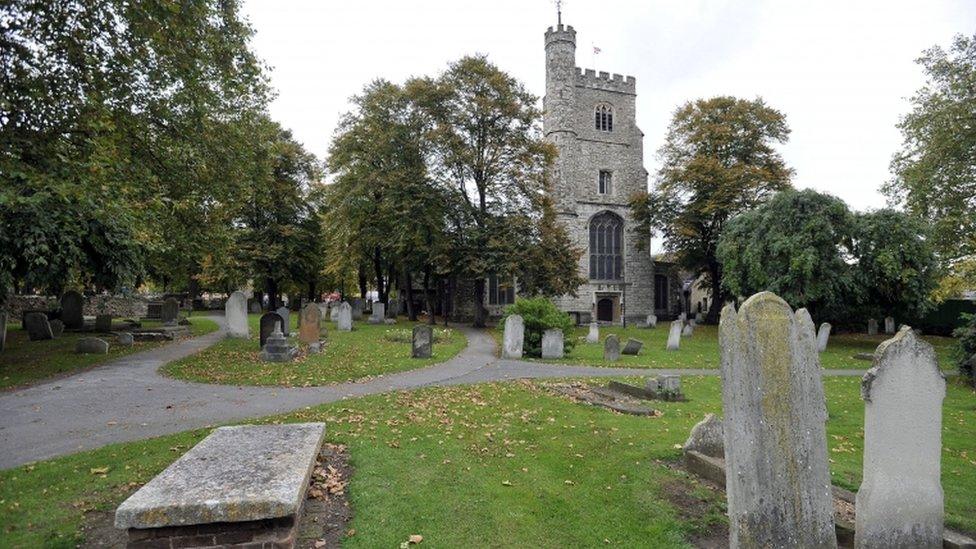
Mr Kovari and Mr Whitworth's bodies were found in the graveyard of St Margaret's Church
Lead investigator Det Ch Insp Tim Duffield said Port was "one of the most dangerous individuals" he had encountered during his 28-year career.
The initial handling of the case has provoked fierce criticism from friends, families and campaigners, who accused police of failing to act on earlier concerns about Port.
It has also emerged that the coroner at Daniel Whitworth's inquest expressed concerns about the suicide note found in his hand, and did not rule out the involvement of another person.
Scotland Yard has admitted it missed "potential opportunities" while investigating the deaths.
The Independent Police Complaints Commission is examining the initial police response to the deaths of the four men.
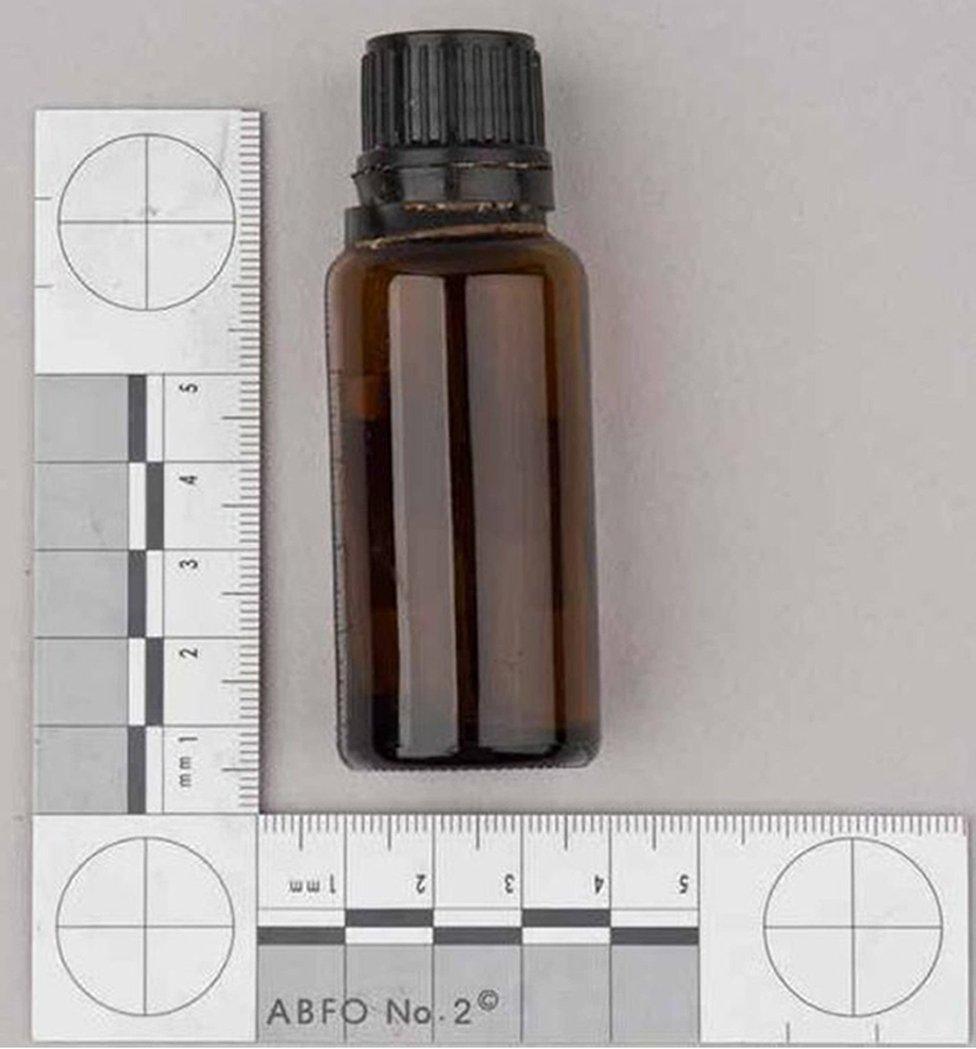
A brown bottle containing GBL - a drug closely related to GHB - was found near Anthony Walgate's body
- Published23 November 2016
